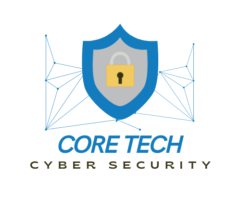Starting a career in cybersecurity can be a rewarding path, and obtaining the right entry-level certifications can help you build a strong foundation and demonstrate your commitment to potential employers. Here are some of the best entry-level cybersecurity certifications to consider:
1. CompTIA Security+
CompTIA Security+ is widely regarded as one of the best entry-level certifications for those new to cybersecurity. It provides a solid foundation in security principles and practices, making it ideal for beginners.
Key Features:
- Comprehensive Coverage: Includes topics such as network security, threat management, and risk assessment.
- Vendor-Neutral: Applies to a broad range of security roles and technologies.
- Widely Recognized: Valued by many employers and often a prerequisite for more advanced certifications.
Earn CompTIA Security+ to gain a well-rounded understanding of cybersecurity and demonstrate your readiness for entry-level positions.
2. Certified Ethical Hacker (CEH) – Associate Level
The Certified Ethical Hacker (CEH) is a well-known certification offered by the EC-Council. For those just starting out, the CEH – Associate Level provides an entry point into ethical hacking and penetration testing.
Key Features:
- Foundational Knowledge: Covers basics of ethical hacking and security assessments.
- Practical Skills: Provides hands-on experience with penetration testing tools and techniques.
- Career Path: Sets the stage for more advanced ethical hacking certifications.
Start with the CEH – Associate Level to build a foundation in ethical hacking and prepare for more advanced cybersecurity roles.
3. Cisco Certified CyberOps Associate
The Cisco Certified CyberOps Associate certification focuses on operational aspects of cybersecurity, including network security, incident response, and security monitoring.
Key Features:
- Operational Focus: Emphasizes skills needed for day-to-day security operations and incident response.
- Cisco Technologies: Provides a basis for working with Cisco’s security solutions and technologies.
- Entry-Level: Designed for those new to cybersecurity operations and seeking foundational knowledge.
Obtain the Cisco Certified CyberOps Associate to gain practical skills in security operations and prepare for a role in cybersecurity monitoring.
4. Certified Information Systems Security Professional (CISSP) – Associate
The Certified Information Systems Security Professional (CISSP) – Associate is a stepping stone for those who plan to pursue the full CISSP certification. It provides an introduction to the CISSP body of knowledge.
Key Features:
- Foundation for CISSP: Prepares you for the more advanced CISSP certification.
- Comprehensive Coverage: Introduces key concepts in information security and management.
- Career Advancement: Demonstrates commitment to the field and prepares you for future advancement.
Achieve the CISSP – Associate to establish a strong foundation for the CISSP certification and advance your cybersecurity career.
5. (ISC)² Systems Security Certified Practitioner (SSCP)
The Systems Security Certified Practitioner (SSCP) from (ISC)² is an entry-level certification that focuses on implementing, monitoring, and administering IT infrastructure using established security practices.
Key Features:
- Focused Content: Covers areas such as access controls, security operations, and risk identification.
- Practical Skills: Emphasizes hands-on skills in managing and protecting IT environments.
- Entry-Level Certification: Suitable for those starting out in the field of cybersecurity.
Pursue the SSCP to gain practical skills and demonstrate your ability to manage security operations and protect IT systems.
6. Certified Cybersecurity Entry-level Technician (CCET)
The Certified Cybersecurity Entry-level Technician (CCET) is a newer certification designed specifically for individuals entering the cybersecurity field. It focuses on fundamental skills and knowledge required for entry-level positions.
Key Features:
- Fundamental Skills: Covers essential cybersecurity concepts and practices.
- Entry-Level Focus: Tailored for those who are new to cybersecurity and seeking initial credentials.
- Emerging Certification: Reflects current industry needs and trends.
Earn the CCET to demonstrate your foundational knowledge and readiness for entry-level cybersecurity roles.
Conclusion
Starting a career in cybersecurity is a promising endeavor, and obtaining the right entry-level certifications can set you on the path to success. Whether you choose CompTIA Security+ for a broad foundation, CEH – Associate Level for ethical hacking basics, or Cisco Certified CyberOps Associate for operational skills, these certifications can help you build a strong foundation in cybersecurity and open doors to exciting career opportunities.
